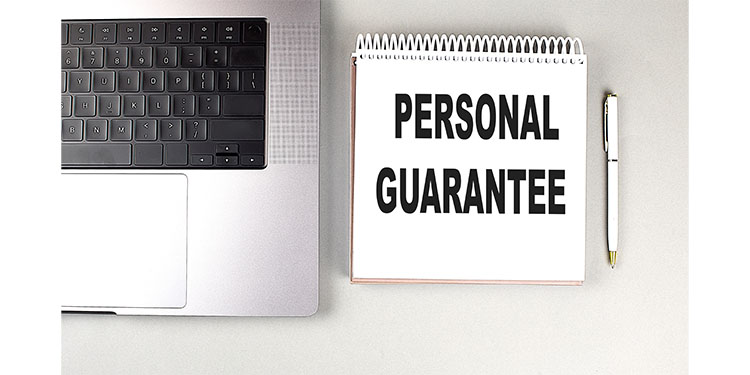Personal Guarantees in Business Acquisition Financing

When buying an established business, you’ll likely encounter personal guarantees as part of your financing agreement. Understanding how these guarantees work is essential before you commit to purchasing a business.
A personal guarantee requires you, as the buyer, to pledge your personal assets as collateral for the business acquisition loan. This means the lender can pursue your personal assets if the business you’re buying fails to generate enough revenue to repay the loan.
Types of Business Acquisition Loans and Personal Guarantee Requirements
Different financing options come with varying personal guarantee requirements when buying a business:
- SBA Loans: The Small Business Administration (SBA) mandates personal guarantees from any owner or business partner with 20% or more ownership in the business being purchased. This requirement is non-negotiable, regardless of the business’s financial health.
- Traditional Bank Loans: Banks typically include personal guarantees in their loan requirements, especially if the business’s assets alone aren’t sufficient collateral.
- Alternative Lenders: Online lenders, peer-to-peer platforms, and search funds may offer more flexible personal guarantee requirements. Some may ask for guarantees based on the loan terms and borrower’s personal credit. Others offer unsecured loans, but at higher interest rates.
Understanding Personal Guarantee Types
When financing a business purchase, you’ll encounter two main types of personal guarantees:
- Unlimited Personal Guarantees: The guarantor is responsible for repayment of the full amount of the loan, including interest and legal fees. All personal assets at risk, including real estate and bank accounts.
- Limited Personal Guarantees: The guarantor’s liability is capped at a specific amount or a percentage of the entire loan amount. The limit reduces their personal exposure and risk of business debt.
When you sign a personal guarantee, you’re offering major assets, like your home, vehicles, and investment accounts, as collateral. If the business defaults or misses loan payments and legal action is taken, those assets could be seized. Your credit score could also suffer, affecting your financial stability and possibly leading to bankruptcy if you can’t pay the debt.
Due Diligence: Your First Line of Defense
Before accepting a personal guarantee for a business acquisition, thorough due diligence is essential:
- Assemble a team of experts including accountants, lawyers, and business brokers
- Thoroughly assess the business's financial health:
- Cash flow patterns
- Existing debts and obligations
- Profit margins
- Business credit history
- Past financial statements
- Evaluate the business's ability to service the acquisition debt
Weighing the Pros and Cons as a Business Buyer
Before agreeing to a personal guarantee for a business acquisition, you should carefully consider the risks and rewards.
Pros
- Personal guarantees can improve your chances of getting approved for a loan, especially for new businesses or those with limited credit history.
- Lenders may offer better interest rates and terms if you provide a guarantee.
- You might qualify for larger loan amounts by using your personal assets as security.
Cons
- If the business defaults, you could lose personal assets like real estate or savings.
- A default can negatively affect your credit report, making future borrowing more difficult.
- Increases your personal financial risk in an already complex transaction.
Negotiating Personal Guarantees in Business Acquisitions
When structuring your business purchase, consider these strategies to minimize personal guarantee risks:
- Request a limited personal guarantee
- Negotiate time-based reductions that decrease your liability as the business demonstrates stability under your ownership
- Ask for release conditions, such as:
- Meeting specific financial milestones
- Paying off a certain percentage of the loan
- Maintaining strong business performance metrics
Protecting Your Personal Assets
Consider these steps to protect yourself when buying a business with a personal guarantee:
- Form a limited liability company (LLC) or other appropriate business structure
- Maintain regular financial check-ins with your lender
- Monitor the business's performance closely to spot potential issues early
- Consider alternatives like:
- Using additional business assets as collateral
- Finding a co-signer to share the guarantee
- Negotiating seller financing with different terms
Remember to balance the opportunity of business ownership with your personal risk tolerance. Even if the business you're buying shows promise, a personal guarantee means you're personally liable if the business struggles. Carefully weigh the potential rewards against the financial risks you're willing to accept as a business buyer.
Learn more about financing your business acquisition in the BizBuySell Learning Center.

